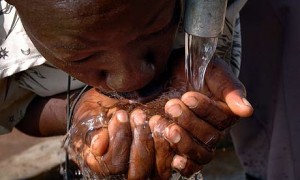This article gives an interesting perspective on the reasons why some NGO’s fail, and other succeed in Africa . The article reminds me of Dambisa Moyo’s book, Dead Aid.
By Marieme Jamme
Regulation, accountability and closer monitoring of a number of well-meaning but often misguided and ignorant aid organisations is vital to prevent them hindering rather than supporting efforts to eradicate poverty in Africa.
 For more than five decades, countless non-government organisations (NGOs) have been seeking to bring positive change to Africa, investing huge amounts of time and energy to help those in desperate need. In the fight to eradicate poverty and conflict and improve the rights and conditions of women and children, many are doing superb and valuable work – but others are not.
For more than five decades, countless non-government organisations (NGOs) have been seeking to bring positive change to Africa, investing huge amounts of time and energy to help those in desperate need. In the fight to eradicate poverty and conflict and improve the rights and conditions of women and children, many are doing superb and valuable work – but others are not.
A number of NGOs – most of which are driven by western funding and ideas – are household names, while others are micro-projects that are off the radar of most media but are nevertheless helping to improve the day-to-day lives of many Africans. Yet there are also many wannabe rescuers who are actively doing harm in Africa: bad ideas are duplicated across the continent, objectives and deadlines missed or efforts badly targeted, and promises broken, while mediocrity and incompetence are rarely challenged, leaving the poor ending up where they started. In extreme cases their work is not only inadequate but actually destructive in social, economic and environmental terms, crushing the hopes and dreams of millions.
Given what is too often a lack of accountability and credibility along with the huge funds that pass through NGOS, there are growing calls for closer regulation. We also need to end the often corrupt relationship – characterised by favouritism and bribery – between certain NGOs and some African governments. This situation cannot continue.
A good example of a bad but well-intentioned idea arose a few months ago, when a young US entrepreneur called Jason Sadler launched a campaign called “1 million t-shirts.” His aim was apparently simple: to collect 1m new or used t-shirts, each donor enclosing $1 towards the cost of shipping them to Africa, where they would then be distributed to the grateful, t-shirtless masses. At the time, the project’s website gushed: “We’re going to change the world.”
Little did he know – with his self-confessed ignorance of Africa and African development – that he would unleash a barrage of outraged criticism from the aid community and development watchers. I was one of the angry people who talked to Sadler at the time, but I’m glad to say that he has listened and learned. I am now helping him in an advisory capacity to transform his initial idea into something constructive.


Many a time we don’t get to hear what our leaders say about aid…But I once read the following article by Paul Kagame…It generally tells you what good aid is…and is not!
There is a debate among geopolitical and economic commentators about the merits of Chinese versus western involvement with Africa. One argument is that Chinese investment is exploitative and undermines the development of democracy and human rights on the continent. Others view the matter in terms of competition, arguing that China is encroaching on the decades-long monopoly of the west over Africa’s natural resources.
Neither of these viewpoints addresses the core issues. First, major players in global investment and development are discussing Africa without engaging its people as equal partners. Second, Africans are not seen to be proactive in setting their own priorities and terms of engagement.
Development aid, fashioned on this skewed relationship, has long been a key source of income for the continent. While helpful, aid has not delivered sustainable development. It is clear that trade and investment bring greater opportunity for wealth creation. Africa welcomes investment, from the east and west, north and south, and Rwanda is no exception. We want investment that offers skills and jobs, encourages entrepreneurship, and provides the opportunity to improve millions of lives.
This call for investment and trade rather than traditional aid does not mean the latter’s contribution to addressing poverty is not recognised. However, the fundamental problem with the current development aid practice is the danger countries face as they become perpetually reliant on handouts.
So what should those who give aid, and those who receive it, focus on? The primary purpose of aid should ultimately be to work itself out, leaving a positive legacy behind. Aid should also be used to create opportunities for trade, enhance self-sufficiency and assist with the development of a robust private sector to attract investment. In many countries, for example, aid offers resources such as fertilisers for free. The intention is good but this often prevents local businesses from being able to provide these goods competitively. Given the choice, people would prefer to work and provide for themselves, rather than receive charity. Africans want self-determination and dignity.
You can read the full article here: (http://www.guardian.co.uk/commentisfree/2009/nov/02/aid-trade-rwanda-china-west)